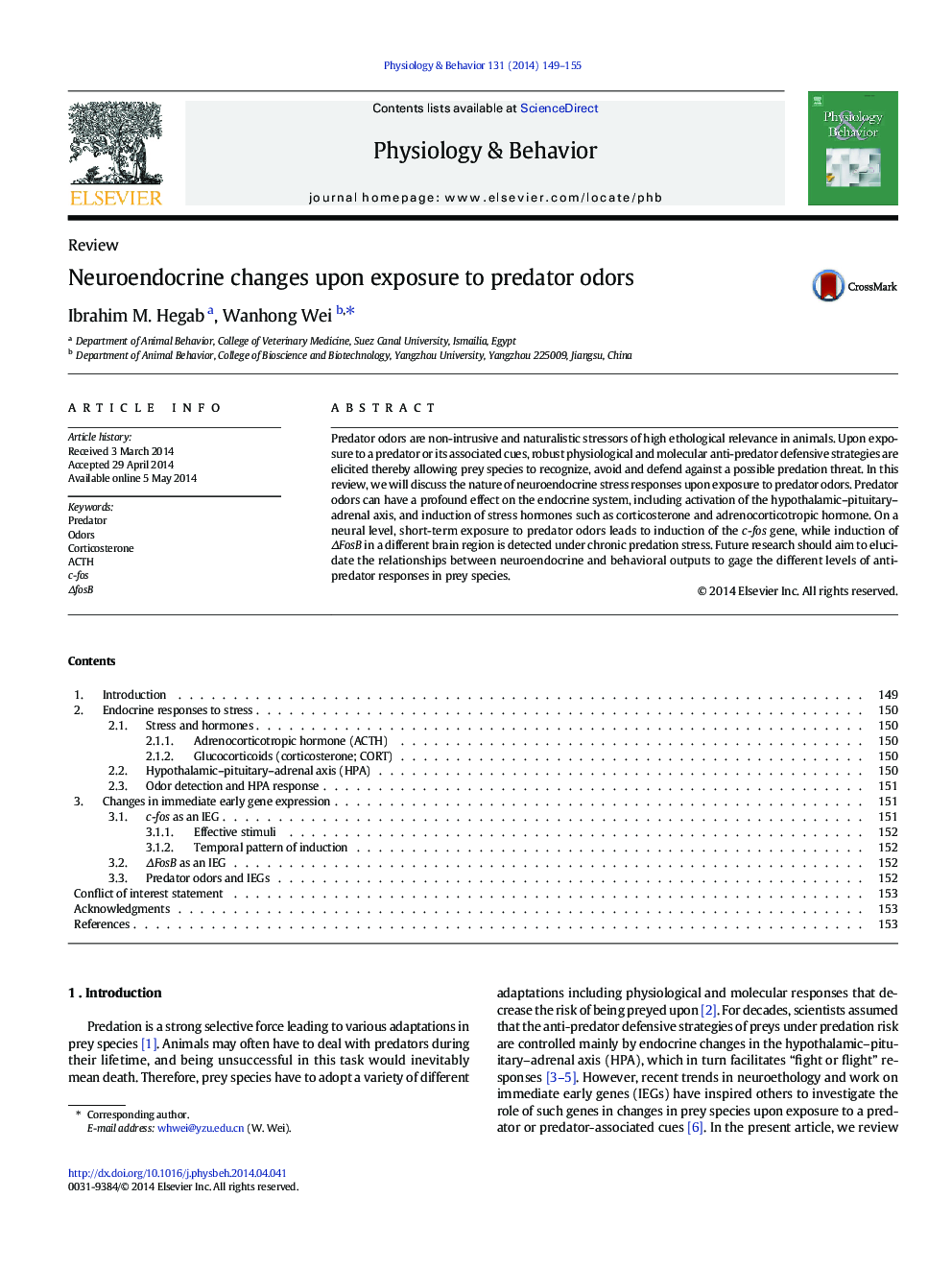| Article ID | Journal | Published Year | Pages | File Type |
|---|---|---|---|---|
| 5924097 | Physiology & Behavior | 2014 | 7 Pages |
Abstract
Predator odors are non-intrusive and naturalistic stressors of high ethological relevance in animals. Upon exposure to a predator or its associated cues, robust physiological and molecular anti-predator defensive strategies are elicited thereby allowing prey species to recognize, avoid and defend against a possible predation threat. In this review, we will discuss the nature of neuroendocrine stress responses upon exposure to predator odors. Predator odors can have a profound effect on the endocrine system, including activation of the hypothalamic-pituitary-adrenal axis, and induction of stress hormones such as corticosterone and adrenocorticotropic hormone. On a neural level, short-term exposure to predator odors leads to induction of the c-fos gene, while induction of ÎFosB in a different brain region is detected under chronic predation stress. Future research should aim to elucidate the relationships between neuroendocrine and behavioral outputs to gage the different levels of anti-predator responses in prey species.
Related Topics
Life Sciences
Biochemistry, Genetics and Molecular Biology
Physiology
Authors
Ibrahim M. Hegab, Wanhong Wei,
